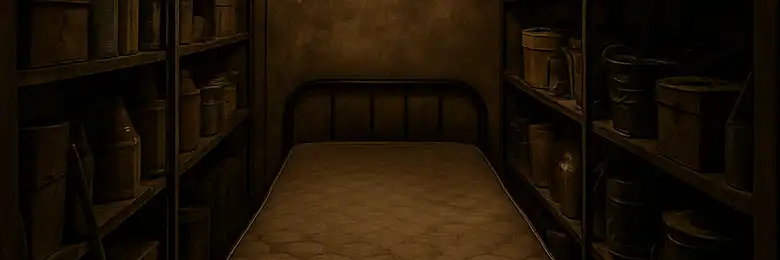SHORT STORY DELIRIOUS
DELIRIOUS
Automatic traslation from the original story in Spanish. Not checked manually
August 1980. At 20 years old and with an insatiable thirst for opportunity, Diego made a momentous decision. Born near Iquitos, the vast Amazon rainforest offered him limited career prospects. The call of new horizons was unavoidable.
Argentina presented itself as the promised land, a country of abundant opportunities, capable of providing personal and economic growth that Peru could not. The decision was made: Diego would emigrate.
Upon returning home, after the final roundup of the flock, Diego shared his aspirations with his parents. The sadness of leaving mingled with understanding of their concerns. With heavy hearts but full of hope, they gave him their savings, a small sum that represented everything they owned, with the fervent hope that it would allow him to achieve his dream.
They asked him, their voices breaking with emotion, to write to them when he settled in and, if possible, to visit them from time to time. At dawn the next day, with light luggage but his soul full of hope, Diego kissed his parents and set off on what promised to be a long journey, traversed by buses and trains, the only option his budget allowed.
A week later, Diego arrived in Rosario, Argentina. He had chosen this city over the more expensive Buenos Aires because of the promise of greater opportunities. However, reality soon set in.

Two days of tireless job hunting had proved fruitless. Money, diminished by the long journey, was dangerously scarce. The prospect of running out of resources meant not being able to eat and, worse, sleeping outdoors. The winter cold, unlike the warm temperatures of his homeland, where temperatures rarely dropped below 20 degrees, loomed over him like a threat.
On the verge of despair, while wandering the streets of Rosario, a delicatessen caught his attention: “La Nieves.” The name evoked a strange warmth. He entered, with nothing to lose, only the possibility of adding another “no” to his growing list of rejections.
A woman in her forties, Nieves, the owner, was preparing her culinary delights. Seeing the dejected young man, his heart was moved.
“Could you give me a job?” Diego asked, his voice tinged with hopelessness.
Nieves, despite the empathy she felt, had to admit that she had no vacancies. Diego’s plea intensified: nine days without resources, with only enough for a meal or a night of shelter, the streets and the cold as his only destiny.
Without a word, Nieves went to the counter and served him three empanadillas and five meatballs. “Come on, eat this and tell me what you can do,” he said, hoping to find a spark of skill.
Diego recounted his experience tending cattle on a farm near Iquitos, his knowledge of pottery and river fishing, and his willingness to learn. The woman, with four children of her own, saw in him a reflection of the vulnerability that could affect her own family. Touched, she offered him a modest position: food and a cot in the back room, a temporary solution while she helped him find a more stable livelihood.
Days turned into weeks, and Diego proved to be an exceptional apprentice. His ideas, initially considered crazy, proved to be catalysts for a notable increase in sales. One of his most successful initiatives was the creation and distribution of artisanal brochures advertising homemade meals at affordable prices, aimed at the workers of the nearby “La Virginia” factory.
Word of mouth became his best advertising, attracting customers from other businesses in the area. Demand grew, forcing Nieves to seek additional staff for the kitchen and delivery. The friendship and collaboration between Diego and Nieves strengthened, and even Nieves’s husband, Miguel, a mechanic by trade, designed utensils that streamlined the production of bread and pasta, adding the popular “gnocchi del 29” to the menu.
Six months later, one morning, Nieves found the rotisserie empty, without Diego. The alarm went off when she got no response from the back room. She discovered Diego in bed, shivering despite the summer heat, with a scorching fever. Miguel acted quickly, seeking medical help.
The diagnosis was severe flu, but the doctor recommended home treatment with antipyretics and painkillers, as well as chest ointment. He warned them that if the high fever persisted the next day, a transfer to the hospital would be necessary.
Despite the medication, Diego’s condition did not improve, and he remained semi-conscious. Night-time brought some slight relief, with less shivering and a slightly lower fever, but the lethargy persisted, plunging him into a state of profound weakness.
The medication given to Diego began to take effect, but the improvement was slow and barely noticeable. Despite the prescribed doses of antipyretics and painkillers, the young man remained in a deep lethargy, his breathing barely a whisper in the stillness of the night. Miguel and Nieves, their hearts heavy with uncertainty, considered calling the doctor again. Remembering his instructions to wait a day to assess his progress, they opted to administer the last dose of the night and hope that rest would do its work.
Just as they were preparing to retire, a faint murmur caught their attention. They crept closer to the bed and observed Diego. With one hand placed on his chest, his lips moved in an attempt to utter words, and a barely audible whisper escaped. Nieves, straining her ears, thought she heard a clear and emotional: “Viva Perú” (“Long live Peru!”). Tenderly, she tucked him in and whispered to Miguel, “Let’s let him sleep. He seems delirious. If he’s still like this tomorrow, we’ll call the doctor.”
Four hours later, the couple returned to the back room. The dawn light filtered faintly through, illuminating Diego’s face. Joy flooded their hearts as they saw him looking much better; the delirium had disappeared. A smile lit up Nieves’s face as she addressed him: “You gave us quite a scare! We thought we’d have to call the doctor again. You were delirious… it seemed like you were thinking about your homeland, you kept saying ‘Viva Perú!’ with your hand on your chest.”
Diego, with a smile beginning to form on his lips, replied, clearing up the misunderstanding: “No! I didn’t say ‘Viva Perú’! I was asking you to put Vicks Vaporub on my chest. It had helped me breathe a lot.”
In an instant, the tension dissipated, giving way to a shared burst of laughter that echoed throughout the small back room, marking the end of the crisis and the beginning of a full recovery, marked by human warmth and an unexpected touch of humour.
../..
Many years later, Nieves died. Since then, Diego always brings flowers to her grave.
He never cried at the grave. He always smiled, remembering that day with the Vicks Vaporub. Also he knew that if he hadn’t knocked on Nieves’s door that August day in 1980, he probably wouldn’t have his own family now.
“Dad, are we leaving now?”
“Yes, son. Next year you’ll choose the flowers; you’re grown up.”
The boy looks at him curiously. He doesn’t understand the flowers, but holds his father’s hand tightly as they leave the beautiful cemetery.
Delirious – Short stories series – Copyright ©Montserrat Valls and Juan Genovés

